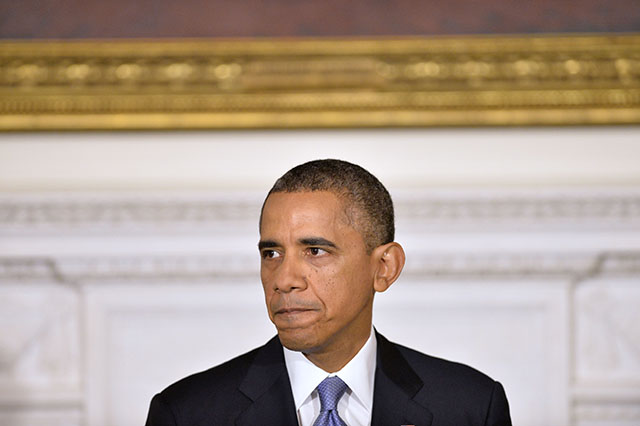While media attention is focused on the Hobby Lobby case before the Supreme Court, there is another important Obamacare case being heard today before the United States Court of Appeals for the District of Columbia Circuit.
Federal courts don’t just issue decisions on constitutional grounds. They also interpret and apply federal statutes, making sure that the Executive branch follows the letter of the law. In Halbig v. Sebelius, the D.C. Circuit is hearing what one group of Obamacare supporters has called the “greatest existential litigation threat” to Obamacare.
Why? Because, quite simply, the law might not work the way the Obama administration would like it to work. Low-income Americans are supposed to receive tax credits to help them buy insurance on state Obamacare exchanges. But the federal government can’t force states to open Obamacare exchanges, and 36 states—most of the country—have decided to opt out.
In those states, the federal government sets up exchanges. The problem? The tax subsidies for low-income Americans are only available, “through an Exchange established by [a] State under section 1311.” Federal exchanges are set up under Section 1321 of Obamacare—not Section 1311. But the Administration still wants to provide tax credits, even though the law doesn’t appear to authorize the handout. Sound familiar?
A group of individuals and businesses in states that didn’t set up Obamacare exchanges sued to stop this scheme. Back in January, however, a federal district court dismissed the claims, and the D.C. Circuit put the appeal on an expedited schedule, hearing oral argument today.
If the plaintiffs win on appeal, this won’t strike Obamacare from the books—Halbig is a statutory case, not a constitutional case. But it will knock out one of the most important parts of the law. Perhaps more importantly, such a decision will highlight the true costs of health insurance under Obamacare.
Heritage has highlighted projected premium increases under the law. But it’s hard to measure economic effects when the federal government is providing hidden tax subsidies to many people on the exchanges. Without the subsidies, the true costs of Obamacare will become apparent to voters.
So while the religious liberty Hobby Lobby case is getting all the press today, the court battles against Obamacare are proceeding on several fronts.



























